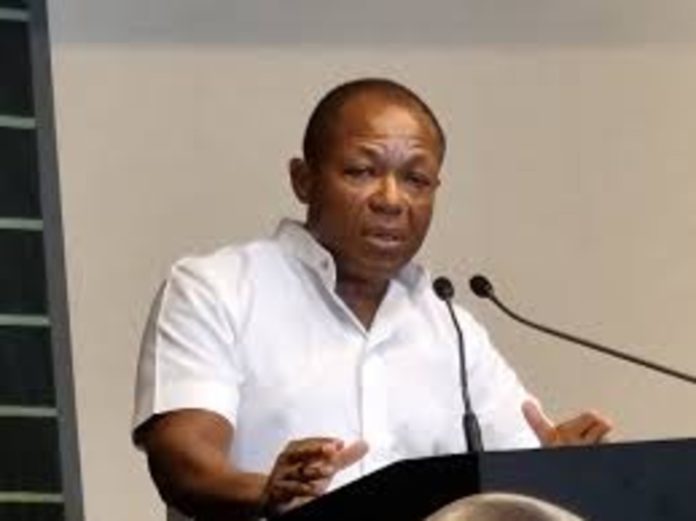Development Bank Ghana has revealed that it is working to advance 1 billion cedis to commercial banks and participating financial institutions this year to support some sectors of the economy.
Chief Executive of Development Bank Ghana, Kwamina Duker, who disclosed this to JOY BUSINESS in Washington DC on the sidelines of the Annual IMF /World Bank Spring meetings, noted this part of their efforts to provide long-term funding to the commercial banks for on-lending to the private sector and sectors described as crucial to the development of Ghana’s economy.
“ Since we started operations we have advanced 1 billion dollars through our participating financial institutions to the private sector, and we intend to increase to 2 billion before the end of this year, ” the Development Bank’s Chief Executive maintained.
This he maintained could make Ghana one of the biggest lenders in the country when it comes to long-term funding.
Mr Duker maintained that the Bank remains resolute to provide the needed financial assistance to areas that have not been given the needed attention, by joining hands with their participating financial institutions in the country, to provide the needed support.
Mr Duker argued that “The Bank places significant emphasis on targeted development sectors by providing financial support and expertise to these sectors through participating financial institutions. The bank aims to fuel prosperity and unlock the potential of Ghana’s economy”
Supporting the Agricultural Sector
Mr Duker revealed that out of the 1 billion cedis that will be given to the commercial banks this year, 25 to 35 percent should be allocated to the agricultural sector.
The Chief Executive of the Development Bank added that their mandate is to work on certain areas in the economy like manufacturing, agriculture ICT, and high-value services in the economy.
“Our focus is primarily on agric, and that is why we are working with the Ghana Incentive-Based Sharing System for Agricultural Lending (GIRSAL) to help deal with funding challenges in the sector” Mr Duker added.
He noted that “we believe that agriculture is one of the best ways to transform the economy and provide support for food security and that is why we are giving this sector the needed attention.”
Impact Financing
The Chief Executive of Development Bank Ghana revealed that they have also put in place measures to ensure that, these funds get to the right sectors and achieve the desired results. He added that “this will ensure that expected impact is achieved in terms supporting sectors that have not secured the needed funding in the past.
“We are not lending for lending sake, but rather, lending with purpose and targeting banker-able deals” Mr Duker revealed.
He also revealed that Development Bank Ghana reps are in Washington DC to update the World Bank and other development partners that have supported the bank over the years, and they are happy with how the funds have been used.
“ They are also pleased about the governance structures that have been put in place”
Established in 2020, but launched full operations in 2022, the Development Bank Ghana is owed by the government, with co-financial assistance from the Federal Ministry for Economic Cooperation and Development of Germany through the KFW, World Bank, African Development Bank and European Investment Bank, by providing funding to commercial banks to on-lend to the private sector.
READ ALSO:

